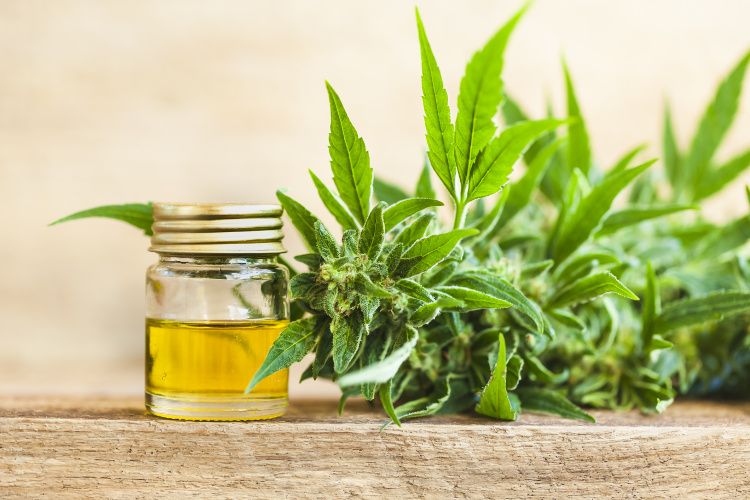FDA, FTC send joint warning letter to CBD firm making infant and child autism and ADHD disease claims, among others
Rooted Apothecary is the seventh CBD company to receive an FDA warning letter in 2019.
Photo © AdobeStock.com/Elroi

On October 22, FDA and FTC sent a joint warning letter to a company selling cannabidiol (CBD) products making unsubstantiated disease claims. The company, Rooted Apothecary LLC (Naples, FL), made claims that its products “treat teething pain and ear aches in infants, autism, attention-deficit/hyperactivity disorder (ADHD), as well as Parkinson’s and Alzheimer’s disease, among other conditions or diseases,” FDA said. The agency called these claims especially worrying because some of them target infants and children.
In an FDA statement, FDA Acting Commissioner Ned Sharpless, MD, said: “We’ve sent numerous warning letters that focus on matters of significant public health concern to CBD companies, and these actions should send a message to the broader market about complying with FDA requirements. As we examine potential regulatory pathways for the lawful marketing of cannabis products, protecting and promoting public health through sound, science-based decision-making remains our top priority. We appreciate the FTC joining us on these and other actions to protect consumers from fraudulent CBD products.”
Both FDA and FTC participated in the joint warning action. Rooted Apothecary not only made claims that the FTC determined were not scientifically substantiated, but the brand also marketed some of its products as dietary supplements despite the fact that FDA has not authorized the legal use of CBD in dietary supplements.
Claims the company made include:
- “Instead of synthetic chemical[s] that can have safety concerns, this blend uses the best of nature to help calm the inflammation and pain of teething, while also promoting sleepiness for your little one.”
- “No matter what age, ear aches are a terrible, no good way to live each day! Our main priority was safety, effectiveness . . . as we formulated this for the entire family including our precious little ones. When the pain is bad, this roller goes to work for soothing pain, inflammation, and to battle against the bacterial/viral critters to blame.”
- “Increasing evidence suggests that CBD oil is a powerful option for pain . . . anxiety . . . and autism . . . It seems like an attractive and safe option for children.”
- “CBD oil may have neuroprotective properties and may protect against neurological conditions, such as Parkinson’s and Alzheimer’s disease.”
- “[P]ossible uses for CBD include helping with skin problems such as acne, autism, ADHD, and even cancer. It’s often used in conjunction with traditional treatments to provide extra help. Children can use high amounts of CBD safely and without any risk.”
Rooted Apothecary is the seventh CBD company to receive an FDA warning letter in 2019. The company was given 15 working days to respond to the agencies. The company faces the possibility of product seizure and/or injunction.
In its press statement, FDA reiterated its position that CBD is not a legal dietary ingredient and its concern about companies selling unapproved CBD drugs.
“The FDA continues to be concerned about the proliferation of products claiming to contain CBD that are marketed for therapeutic or medical uses that have not been approved by the agency. The FDA approval process ensures that drugs on the market are safe and effective for their intended therapeutic uses. CBD is marketed in a variety of product types, such as oil drops, capsules, syrups, teas and topical lotions and creams. The FDA has not approved any CBD products other than one prescription human drug product to treat rare, severe forms of epilepsy. There is very limited information for other marketed CBD products, which likely differ in composition from the FDA-approved product and have not been evaluated for potential adverse effects on the body.”
However, the agency did add that it continues to “explore potential pathways” for CBD’s use in consumer products. As the agency has previously stated, part of its concern centers on determining the safety of CBD products.
“We recognize that there is significant public interest in cannabis and cannabis-derived compounds; however, we must work together to fill in the knowledge gaps about the science, safety and quality of many of these products. We are committed to advancing our regulation of these products through an approach that, in line with our mission, prioritizes public health, fosters innovation and promotes consumer confidence,” said FDA Principal Deputy Commissioner Amy Abernethy, MD, PhD, in the press statement.
Senate Committee has released the text of 2024 Farm Bill, with changes to hemp regulations
November 19th 2024The U.S. Senate Committee on Agriculture, Nutrition, & Forestry has introduced the Rural Prosperity and Food Security Act, which will serve as the Senate’s draft for the 2024 Farm Bill.